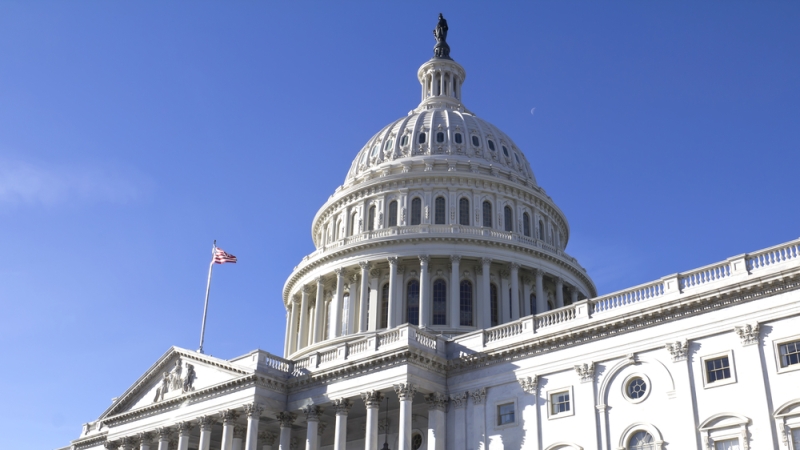The President Proposes…

…and the Congress disposes. So goes the old adage in political science and on Capitol Hill. Congress’ power of the purse, enunciated in Article I of the Constitution, is at the very heart of its authority and role in our democracy. That’s why I’m somewhat amused by all the concern, gnashing of teeth, press articles, and the like about President Trump’s recent release of his FY 2018 budget.
Why do I say that–“somewhat amused”? For several reasons; let me enumerate.
First, I’ve seen this movie before. I assumed the role as Director of the Office of Management, Budget and Planning at the Department of Commerce in the early 1980s, during the Reagan administration. The president’s budget was based on reports from the Grace Commission and proposed the elimination or drastic cutbacks of a number of programs, agencies, and so on. One could lay that list from 35 years ago against this president’s budget and find an almost complete overlap. Reagan was going to abolish the National Endowment for the Humanities, the National Endowment for the Arts, the Appalachian Regional Commission, the…well, you get the idea. As the administration, through the Office of Management and Budget, “instructed” me to reiterate this budget request year after year, I began to refer to it as my Don Quixote list. And those agencies and programs are still around.
Second, in the Federal acquisition and information technology (IT) community, we need to see the tree, not the forest. The tree, in this case, is Federal IT spending. President Trump’s budget proposes to spend $95.8 billion in FY 2018, $1.7 billion more than FY 2017 and $5.4 billion over FY 2016. Priorities remain similar to those in the Obama administration–modernization, cloud computing, cybersecurity, shared servicing, category management, and digital services to citizens. And the Congress has a history of appropriating more for IT than the administration has requested. So prospects are positive for this community.
Finally, the response to President Trump’s proposal has been…well, less than lukewarm. What have members of Congress had to say about it? Here are some comments:
“I thought Mexico was going to pay for the wall. Why is this in our budget?”
– Rep. Fred Upton, Michigan
“Taking funding away from Louisiana’s coastline is a non-starter.”
– Sen. Bill Cassidy, Louisiana
“It’s just a lot of people who don’t know what the hell is going on in farm country.”
– Sen. Pat Roberts, Kansas
“A lot of Benghazis in the making if we actually implemented the State Department cuts. So, this
budget is not going anywhere.”
– Sen. Lindsay Graham, South Carolina
“I do not support proposed cuts to the National Institutes of Health.”
– Sen. Pat Toomey, Pennsylvania
“Many of the proposed cuts to important domestic programs that many Michiganders rely on
are, frankly, non-starters.”
– Rep. Fred Upton, Michigan
“Meals on Wheels, even for some of us who are considered to be fiscal hawks, may be a bridge
too far.”
– Rep. Mark Meadows, North Carolina
“We know that the president’s budget won’t pass as proposed.”
– Sen. John Cornyn, Texas (also serves as Senate Majority Whip)
“We’ll be taking into account what the president recommended. They will not be determinative.”
– Sen. Majority Leader Mitch McConnell, Kentucky
“The proposed cuts to some Federal programs are not mere shavings, they are rather deep and
harmful to my district…”
– Rep. Hal Rogers, Kentucky, former chairman of the House Appropriations Committee
What do all these comments have in common? They are all from members of the president’s own party. Some budget proposals during the Obama administration were deemed dead on arrival. This one, as they said in The Wizard of Oz is likely:
“…not merely dead, it is really most sincerely dead.”
– Coroner, Munchkinland
